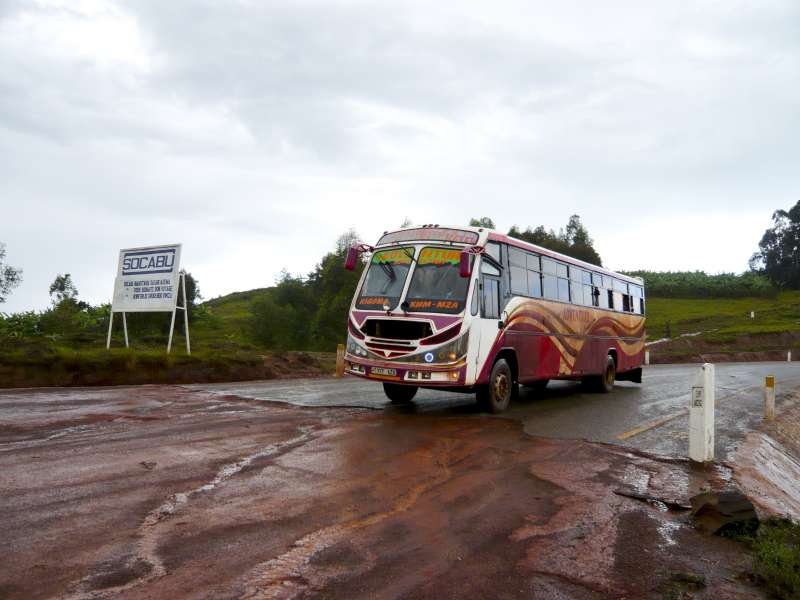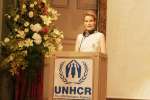- Text size
 |
|  |
|  |
| 
- Français
After 20 years, more than 1,000 Burundians returning home every day
News Stories, 14 November 2012
MABANDA TRANSIT CENTRE, Burundi, November 14 (UNHCR) – More than 1,000 Burundians are returning to their homeland almost every day with the help of the UN refugee agency and its partners, after losing their refugee status in Tanzania.
Taking advantage of a last opportunity for assistance in making the journey, close to 8,000 former refugees have returned from Mtabila refugee camp in Tanzania since October 31 on convoys organized by UNHCR, the International Organization for Migration, and other partners. The first convoy carried only 356 people, but more are signing up every day.
"We see more and more people coming forward and the pace of the convoys is picking up," said Chansa Kapaya, UNHCR's representative in Tanzania. "Co-operation between the Tanzanian government and humanitarian agencies on issues related to the orderly return continues to be excellent."
International agencies stepped forward to help the former refugees go home after the government of Tanzania found that some 37,500 Burundians living in the country were no longer refugees and needed to leave Tanzania by the end of the year. A further 2,715 are being allowed to remain in the country as refugees.
The decision followed interviews with some 40,000 Burundian refugees conducted by panels made up of UNHCR staff and Tanzanian government officials over 11 months, giving consideration to developments in Burundi since they fled nearly 20 years ago.
When the weather is bad, the bus journey from Mtabila can take as long as four hours instead of two because rain has made some roads impassable. Once inside Burundi, returnees are given a hot meal at one of three UNHCR transit centres in Makamba province. They also spend the night there before continuing to their home areas.
Those who need medical care receive it and those with specific needs – children alone, pregnant women, blind people or very old people – get special attention.
"We thank God who led us here," said a man named Athanase, standing in this transit centre 20 kilometres from the border, with his wife and seven children, ranging in age from one to 18 years. He said they were looking forward to rebuilding their lives, even though they would have preferred to remain in Tanzania.
All returnees are registered by UNHCR and receive a month's food ration as well as a small cash grant. They also receive a number of useful household items, such as sleeping mats, mosquito nets, buckets, jerry cans, some clothing and sanitary materials. As well, they begin the process of getting a vital government ID card.
By the next morning, most are on their way back, with the help of UNHCR and partners, to where they originally came from. Trucks take them and their possessions to their hometowns (called communes in Burundi) -- 76 communes in 17 provinces, although three communes are the main destinations.
Some of the returnees – who had fled civil strife in the 1990s – seemed genuinely surprised to find a country at peace, apparently believing Burundi was still at war.
Since April 2002, UNHCR has supported the government of Burundi to reintegrate more than half a million returning refugees – helping them reclaim their land, settle land disputes, build homes and start businesses.
"We have helped returnees to resume their normal life," said Catherine Huck, UNHCR's representative in Burundi. "UNHCR intends to continue working closely with the government and development organizations to make sure that this latest group of returnees can restart their lives and contribute to stability in Burundi."
By Kitty McKinsey at Mabanda Transit Centre, Burundi





































